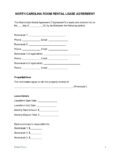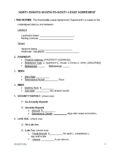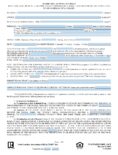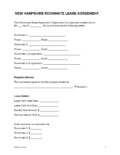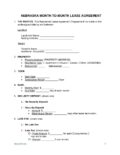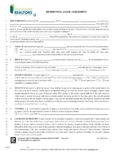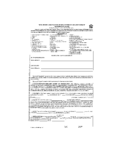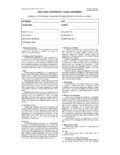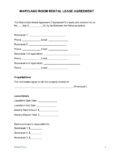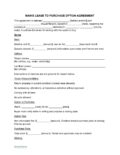Rental Application Form – Landlords in North Carolina use this form to obtain prior written consent from future Tenants before signing the North Carolina roommate rental lease agreement template.
Landlord Tenant Laws
Breaking the lease – In North Carolina, a lease can be broken early if both the Landlord and Tenant agree in writing or if there’s a legal reason such as unsafe conditions or military duty. [1]
